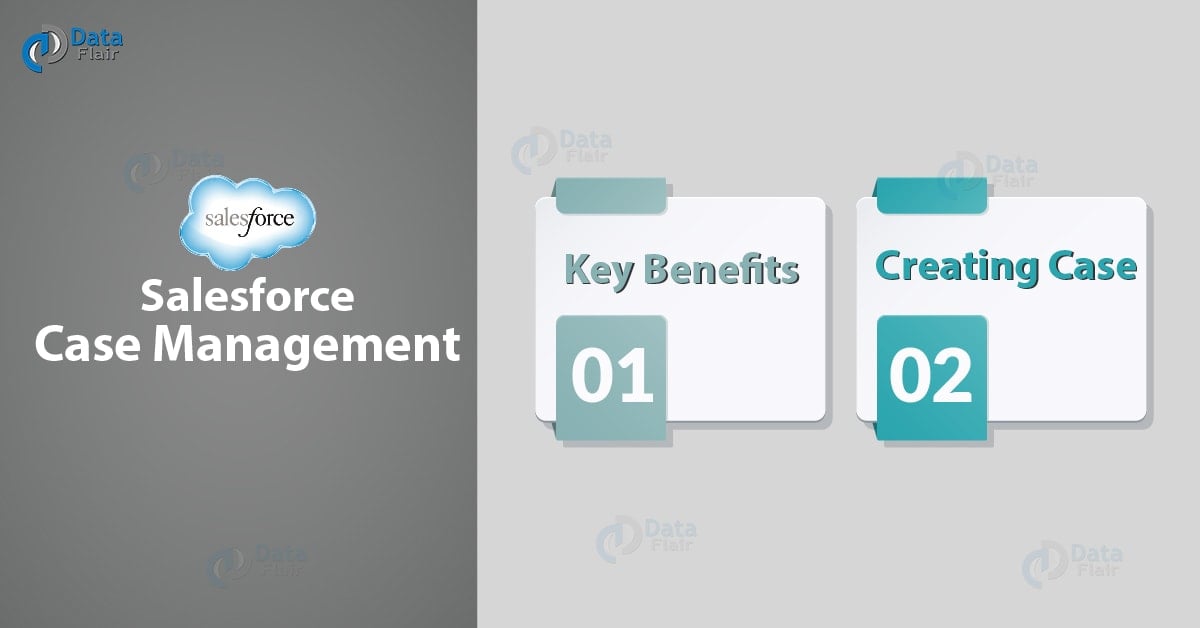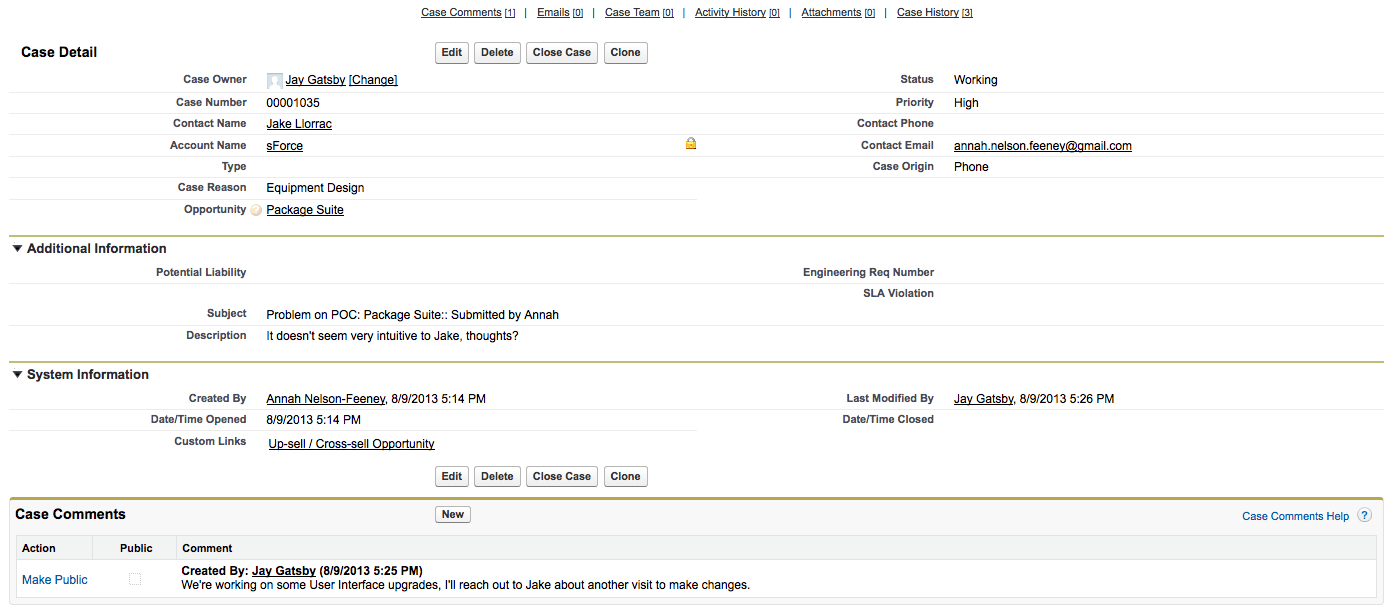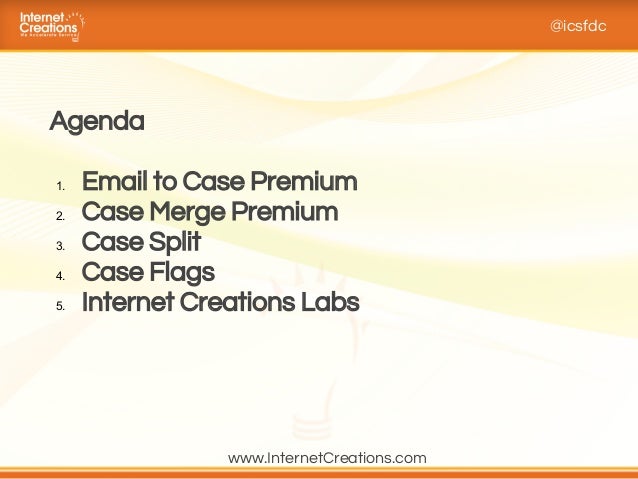
Internally, Salesforce uses a case-sensitive 15 digit ID for all records because everything is in control of salesforce but when doing callout in other words there are applications like Access or Excel which do not recognize that 50130000000014c is a different ID than 50130000000014C, the case-safe 18 character ID was introduced,
Full Answer
Are Salesforce IDs case-sensitive?
The key takeaway is that Ids are always case-sensitive and case must be preserved when working within Salesforce. The only time case-insensitive is a factor is when using various tools to compare Ids.
Why Salesforce case is the best choice for customer support?
To top the experience up, Salesforce Case offers the ability to your agent to share replies and continue ongoing conversations on any channel customer prefers irrespective of the channel through which the customer had initially reached out.
How do I create a Salesforce support case?
Click Create a Case on the "Create a Case" tile. Technical Support for questions about Salesforce products, developer support, feature activation, Marketing Clouds, Admin Assist, etc. Partner Program Support for questions about the partner program such as AppExchange service listing, billing, partner tiers, etc.
What are the Salesforce cases standard objects?
Salesforce standard objects come with a number of features that can be leveraged to build scalable processes in your Salesforce org. Among all the standard objects, Cases is probably the object that offers the biggest number of standard features that can be utilised.

What is Sfid in Salesforce?
Formula field brings Salesforce ID (SFID) instead the value of the object. I have created a formula that would bring in the value of another field, that is a lookup field, as text. The new field will bring in the value of the other field unless it is blank. If field is blank it will write "Unkown program".
What is the difference between 15 digit and 18 digit ID?
15 Digit Id is case-sensitive whereas 18 Digit Id is case-insensitive. Many legacy applications doesn't support case sensitive strings, so in that case we can make use of 18 digit Id which is case in-sensitive.
Are Salesforce IDs case sensitive?
Internal record Id for all custom objects and Standard Objects like Opportunity, Account, Contact and so on will have only 15 digit ID number by default. 15 digit Id number will have numeric digits range from (0-9), a Lowercase letter(a-z) or a Uppercase letters(A-Z). 15 digit ID in salesforce.com is case sensitive.
How do you convert a 15 digit ID to 18 digit ID of a record in Salesforce?
Go to Setup | Object Manager | Object name | Fields & Relationships.Click New.Click the Formula radio button and click Next.Click the Text radio button for 'Formula Return Type. 'Input the following formula into the Formula Editor: CASESAFEID(Id)Set Field Visibility, add, or remove from the page layout.Click Save.
Why do we need 2 IDs in Salesforce?
As a Salesforce admin or developer, you need to perform data operations, write formulas and reference records using their unique Record IDs. Salesforce provides you with two versions of Record IDs – a 15 character and an 18 character ID. The two versions are used in different situations.
What is case safe ID in Salesforce?
A CASESAFE ID is a non-case sensitive version of the Salesforce Contact ID. This is needed for clients using the ContactID as the uniqueID in Schools App, as Schools App does not recognize case sensitivity. It can also be useful for other reasons as well beyond Schools App.
Is Salesforce ID unique?
The SFDC (salesforce.com) ID is a unique identifier of any records located in Salesforce organizations. These IDs exist in 15-character or 18-character formats and are stored in the id field of any Salesforce objects.
Are Dataloaders case-sensitive?
I noticed that in the Data Loader mapping file (. sdl) names of fields of target objects must have exact the same spelling as on target Org (mean case-sensitive). Data loader does not show any error or warning but values for fields with names in different case (UPPERCASE for instance) ignores (WHY?) by Data Loader.
Is account ID the same as Salesforce ID?
The Account ID is the ID number for the Account Object. The Account object is where Salesforce stores information about a business or organization that is part of the sales process. The Contact ID is the identification number for the Contact object.
Can we use 15 digit ID in data loader?
15 digit id is the unique record id of the record. You can use this id to update existing records into SFDC using data loader.
How do I find the 18 digit ID in Salesforce?
0:512:06How to find 18 Digit Org Id ? - YouTubeYouTubeStart of suggested clipEnd of suggested clipSo let's go ahead and find out how we can use 18 digit or get the 18 digit id open the developerMoreSo let's go ahead and find out how we can use 18 digit or get the 18 digit id open the developer console. And go to anonymous window.
How do I find my 18 digit Org ID in Salesforce?
To view the 15-Digit SALESFORCE ORG ID, go to: Setup > Administration Setup > Company Profile > Company Information > Salesforce.com Organization ID. Depending on your level of comfort, you can locate the 18-digit Organization ID by accessing the Developer Console: – Click your name.
What is Salesforce case?
The Case object is the main object of Salesforce Service Cloud and a Case typically represents a customer’s issue, question, or feedback and its resolution process. Therefore, its main purpose is to store information related to each issue, question or feedback from a customer: the time taken to solve it, the support agent who dealt with it on behalf of the company, the person representing the customer who has contacted you, and the different activities needed to solve the request.
What is standard functionality in Salesforce?
In general, you should always use them before resorting to custom functionalities; however , there will be many times in which standard features will not be enough to build a process you need for your business and , in those cases, you should, of course, resort to custom solutions.
Can you have more than one Salesforce user?
In some situations, more than one Salesforce user might be required to solve a support request; for example, depending on the complexity of the issue you might need a support agent, a support manager, and a product manager. If that is the case at your company, Case Teams are a useful feature for your org.
Support Customer Interactions on any Channel with a Salesforce Case
Customers today expect not only a good product but also great post Sales service. Gone are those days when customers were patient to stay on long calls with the contact center or wait for weeks to get a reply on an issue.
Email To Case
With the out-of-the-box functionality of Salesforce’s Email-to-Case, you’ll be able to create a case when your customers send an email to your Support email address.
Mass Close Salesforce Cases
To mass close cases, create a Quick Action on Cases object with a predefined value of ‘Closed’ for Cases Status. Use this button on the Cases List View to close multiple cases at a time.
Get the Right Agent for Your Salesforce Case
Another feature of Salesforce Cases is omnichannel which provides excellent routing capabilities for each case based on agent skills and availability. This feature ensures minimum wait time for customers as they are automatically routed to the first available agent with the necessary skills in their problem area.
Case Teams
Additionally, if your business requires multiple agents to work on the same case, then you can set up Case Teams. Create Case Teams to help groups of people work together to solve cases.
Access to Knowledge Articles
The Salesforce Case object provides the capability for companies to create knowledge articles that help agents and customers find a solution faster.
Reduce the Number of Salesforce Cases with a Self-Service portal
Salesforce also provides the ability to create a customer portal through Experience Cloud (formerly known as a Customer Community) where customers can log in and resolve their issues by themselves or reach out to live agents via chat from the same portal.
